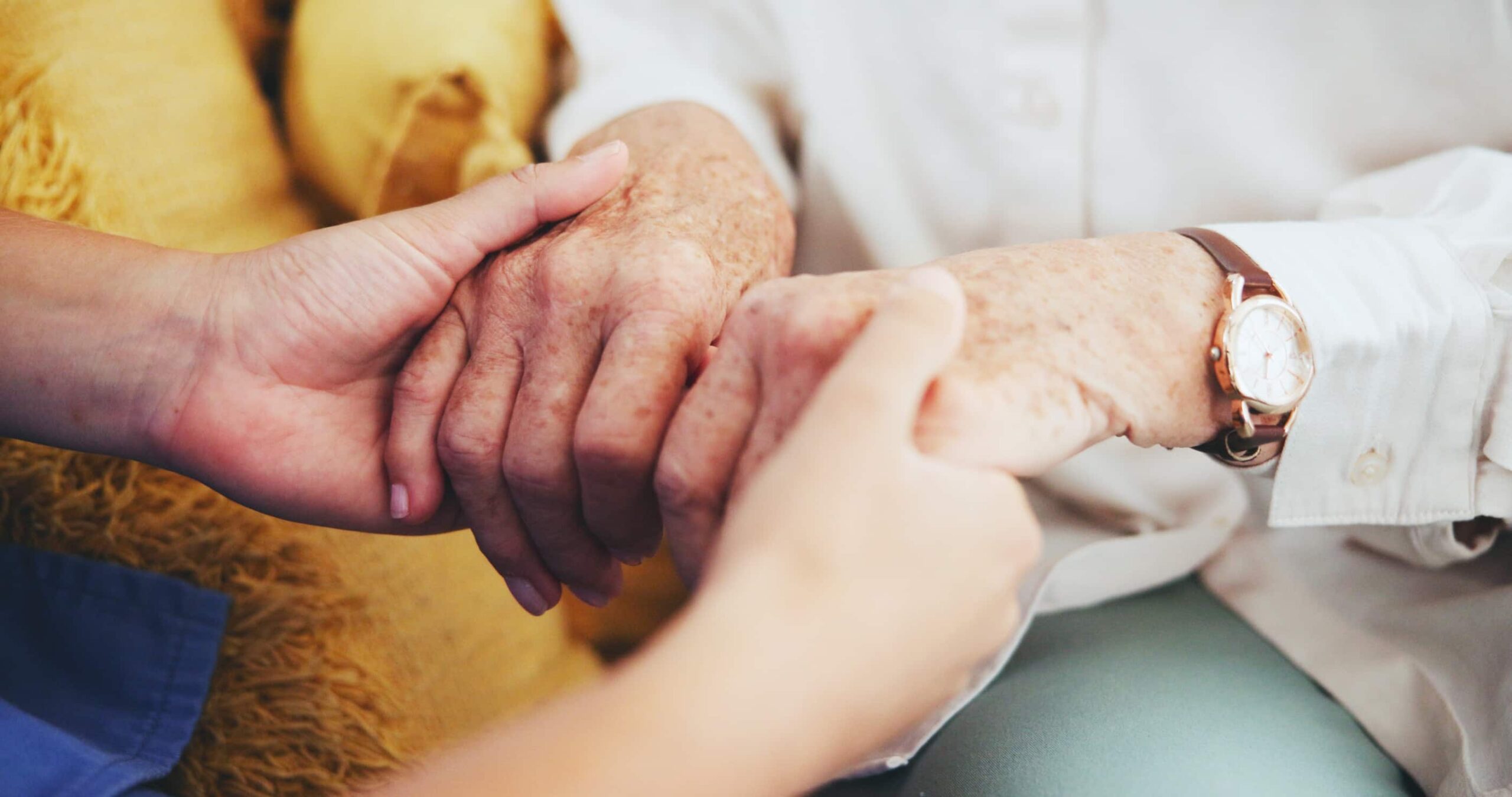You’re likely aware that aging presents challenges, affecting daily tasks for many older adults. Daily living assistance stands out as a key solution, offering customized support through caregivers or tech aids. This assistance can considerably boost independence, allowing seniors to tackle daily activities like cooking and personal care effectively. But what specific strategies and innovations are helping seniors maintain their autonomy? Explore how these elements are transforming their lives.
Understanding the Challenges of Aging
As individuals age, they often encounter a distinct set of challenges that can impact their daily lives and overall well-being. Aging challenges, such as diminished physical strength and cognitive decline, are supported by studies indicating increased difficulty in performing activities of daily living. Health limitations can manifest as chronic conditions like arthritis or cardiovascular disease, further complicating mobility and self-care. Data suggests that over 80% of older adults have at least one chronic health condition, highlighting the prevalence of these issues. These limitations can reduce independence and quality of life. Understanding these challenges is vital for implementing effective strategies to aid aging adults. It is important to recognize how these factors interplay, ensuring that interventions are customized to address the specific needs of aging populations.
The Role of Professional Caregivers

When you consider the role of professional caregivers, you’ll find that personalized care plans are essential for addressing the unique needs of aging adults, as research indicates customized approaches improve overall well-being. Studies show that the emotional support provided by caregivers not only alleviates feelings of loneliness but also enhances mental health outcomes. By focusing on these aspects, professional caregivers can greatly enhance the quality of life for elderly individuals.
Personalized Care Plans
Understanding the essential role of professional caregivers in crafting personalized care plans is important for ensuring the well-being of aging adults. They assess individual needs and tailor care plans that respect personal preferences, offering care flexibility. This adaptability is critical for enhancing independence and improving quality of life. Studies show that personalized care can lead to better health outcomes, as these plans are more responsive to changing needs.
| Factor | Impact on Care Plan |
| Personal Preferences | Increased satisfaction |
| Care Flexibility | Enhanced adaptability |
| Health Outcomes | Improved patient well-being |
Research indicates that caregivers who prioritize these elements create more effective and supportive environments. By focusing on the unique needs of each individual, personalized care plans empower aging adults, allowing them to maintain autonomy while receiving necessary support.
Emotional Support Benefits
While addressing the physical needs of aging adults is essential, emotional support plays an equally important role in their overall well-being. Research indicates that emotional resilience greatly impacts seniors’ quality of life, reducing stress and improving mental health. Professional caregivers offer companionship benefits that enhance emotional resilience by providing consistent social interaction and personalized attention. Studies show that regular engagement with caregivers can alleviate feelings of loneliness and isolation, common among aging populations. By fostering meaningful connections, caregivers contribute to a sense of belonging and purpose, which is critical for maintaining independence. Evidence suggests that seniors with robust social support systems are more likely to experience improved cognitive function and reduced risk of depression. As a result, emotional support is fundamental for aging adults’ holistic care.
Technology Innovations for Daily Assistance
Advancements in technology are reshaping the landscape of daily living assistance service for aging adults, offering solutions that enhance independence and safety. Smart home systems, equipped with voice technology, allow you to control lighting, temperature, and security effortlessly. Wearable devices track essential signs and provide real-time health monitoring, alerting you and caregivers to potential issues. Mobile apps facilitate medication management, while telehealth services guarantee you have access to healthcare professionals without leaving your home. Robotic assistants perform routine tasks, reducing physical strain and promoting autonomy. Virtual reality offers cognitive stimulation and entertainment, which can improve mental health. These innovations empower you to maintain a high quality of life, underscoring the crucial role technology plays in fostering independence as you age.
Community Programs and Support Networks
You can substantially enhance the quality of life for aging adults by engaging them in local senior activities, which research shows can improve mental and physical health. Volunteer support groups play an essential role in providing emotional and practical assistance, fostering a sense of community and reducing feelings of isolation among seniors. Studies indicate that these community programs not only support daily living but also contribute to longer, healthier lives.
Local Senior Activities
Engaging in local senior activities through community programs and support networks greatly enhances the quality of life for aging adults. Research indicates that participating in senior hobbies and local events fosters social connections and mental stimulation, essential for maintaining cognitive health. You’ll find that these activities not only provide entertainment but also serve as platforms for skill development and lifelong learning. Studies show that seniors involved in community activities report higher levels of happiness and reduced feelings of isolation. By attending local events, you can experience a sense of belonging, which is vital for emotional well-being. Additionally, these programs often offer customized activities, ensuring that individuals with varying interests and physical capabilities can participate, thereby promoting inclusivity and independence.
Volunteer Support Groups
When aging adults engage with volunteer support groups, they often discover a profound sense of purpose and community. Research indicates that active participation in these groups can considerably enhance mental health and social well-being. By offering peer mentoring, seniors not only share their wealth of experience but also receive guidance and companionship, fostering mutual growth. Service opportunities within these groups empower aging adults to contribute meaningfully to society, reinforcing their independence and self-worth. Studies show that such involvement reduces feelings of isolation and depression, common among seniors. In addition, volunteer support groups create a network of like-minded individuals, promoting collaboration and resource sharing. This interconnectedness is essential for sustaining an active, engaged lifestyle, ultimately supporting independence in aging adults.
Customizing Care to Individual Needs

Understanding that each aging adult possesses unique needs and preferences, customizing care is crucial to enhance their quality of life. Evidence suggests that personalized services considerably improve well-being by aligning care with individual preferences. This approach involves evaluating personal habits, health conditions, and lifestyle choices. By doing so, you guarantee that services are not just generic solutions but are specifically designed to address unique challenges and desires. Research indicates that when care is customized, it boosts satisfaction and promotes a sense of autonomy. Personalized care plans can include specific dietary needs, preferred daily routines, and social interactions. By focusing on these elements, you can foster a supportive environment that respects personal dignity and independence, ultimately enhancing the aging adult’s overall well-being.
Enhancing Safety and Mobility at Home
Aging adults face numerous challenges at home, and enhancing safety and mobility is a critical component in ensuring their well-being. Research underscores the importance of fall prevention through strategic home modifications and the use of mobility aids. Conducting thorough safety assessments can identify potential hazards, allowing for effective environmental adaptations and accessibility features. These modifications might include installing grab bars, improving lighting, and removing tripping hazards. Assistive devices, such as walkers or stair lifts, promote independence while ensuring safety. Emergency preparedness is essential; having a plan and necessary equipment, like medical alert systems, can save lives. By addressing these factors, you can create a safer, more navigable home environment that supports aging adults in maintaining their independence.
Building Confidence Through Skill Development
Skill development plays an essential role in building confidence for aging adults, fostering a sense of autonomy and empowerment. Research shows that skill building workshops customized for older adults can greatly enhance their self-efficacy. By participating in these workshops, you’re more likely to engage in daily activities with fewer reservations. Activities designed to boost confidence, such as technology training or creative arts, can bridge the gap between reliance and independence. Evidence indicates that when you acquire new skills, your perceived competence increases, which positively affects your willingness to tackle challenges. Structured confidence boosting activities not only improve practical skills but also reinforce emotional resilience. This approach guarantees that you maintain an active role in your community, promoting a fulfilling lifestyle.
The Psychological Benefits of Increased Independence

While building confidence through skill development empowers aging adults, the subsequent increase in independence offers profound psychological benefits. Research shows that self esteem enhancement is directly linked to individuals’ ability to manage daily tasks without assistance. When you realize you can perform activities independently, your confidence naturally grows. This sense of freedom empowerment doesn’t just improve your mood; it also contributes to overall mental health. Studies indicate that maintaining autonomy reduces feelings of helplessness and depression, often prevalent in older age. By fostering independence, daily living assistance programs help you stay engaged with your environment and community. This engagement is essential because it reduces isolation, creating a positive feedback loop where increased independence further enhances psychological well-being.
Frequently Asked Questions
How Do Financial Considerations Impact Daily Living Assistance Options?
You need to evaluate how budget constraints and insurance coverage affect your daily living assistance choices. Analyzing costs and benefits helps to identify the most viable options that align with your financial situation and personal care needs.
What Are the Signs It’s Time to Seek Daily Living Assistance for Aging Adults?
You should recognize signs it’s time for daily living assistance, like frequent falls, neglecting personal hygiene, or confusion with medications. Evidence shows these indicators suggest declining independence, highlighting the need for support to maintain quality of life.
Are There Cultural Factors Affecting the Acceptance of Daily Living Assistance?
You might find cultural stigma and traditional values influencing the acceptance of daily living assistance. Research shows some cultures prioritize family caregiving, impacting decisions. Understanding these factors is essential when considering support options for aging adults.
How Can Family Members Support Independence While Respecting Boundaries?
You can support independence by using boundary setting strategies like clear expectations and limits. Employ communication techniques such as active listening and empathy to encourage dialogue, ensuring your loved one feels respected and involved in decision-making.
What Are the Common Misconceptions About Daily Living Assistance?
You might believe daily living assistance creates dependency, but research debunks these myths. Assistance benefits include increased safety, enhanced quality of life, and maintained autonomy. Evidence shows it supports independence rather than diminishing it.
Conclusion
By embracing daily living assistance, you’ll find that aging adults can greatly enhance their independence. With a combination of professional caregivers, innovative technology, and supportive community programs, seniors can tackle daily tasks more effectively while maintaining their dignity. Customizing care to meet individual needs guarantees safety, boosts mobility, and fosters skill development. These strategies don’t just address physical challenges; they also improve psychological well-being, promoting confidence and reducing isolation for a more fulfilled lifestyle.
The Cassagnol Agency Home Care can help make this a reality by delivering personalized, compassionate support that empowers seniors to live safely and confidently at home.
